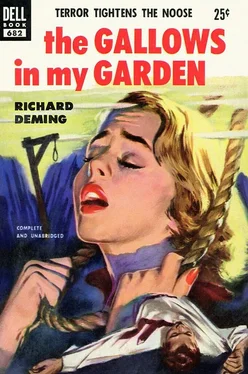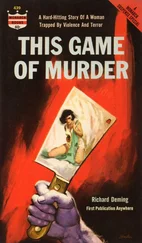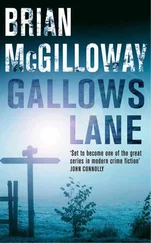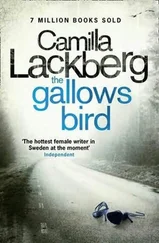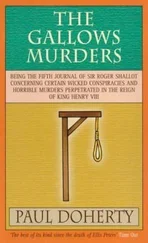This time his nod was accompanied by a definite smile.
Retrieving the suicide note, I examined it myself, noting that though the writing wavered, the lines moved geometrically across the page and were spaced nearly a half inch apart. The last line was only about a quarter inch from the bottom. I tossed the paper back to the professor and imitated him by raising one eyebrow.
“I don’t need to examine it again,” he said ponderously. “I had it under a microscope for twenty minutes.” He traced the bottom line with his finger. “This last line — ‘Explain things to Grace, Uncle Doug’ — Originally there was a period between ‘Grace’ and ‘Uncle Doug,’ then a tail was added to make it a comma. At the time I assumed the writer had simply made a mistake, then gone back and corrected it, for the ink and pen used were the same, and there seemed to be no difference in its age. Of course, with only a single comma for a specimen, it’s impossible to say whether the same writer made the correction.”
I said slowly, “Then this could be part of a longer note, with the bottom cut off and its meaning changed by the addition of a comma?”
He treated me to another nod.
“Originally the word ‘Grace’ may have ended a sentence,” I went on, “which would make ‘Uncle Doug’ the first two words of another sentence that continued on another line.”
Now I had him nodding almost with enthusiasm.
“But there’s no way to guess what the rest of the message may have been,” I ended lamely.
Surprisingly his face broke into a full smile. A rather sorry smile, such as ministers employ at funerals, but nevertheless a smile. “If you can bring me the pad on which this was written, I might be able to restore the full text.”
I looked at him blankly.
“Indentations,” he said simply, apparently having finally exhausted his supply of words.
In spite of his brevity, I got the idea. The pressure of the pen would imprint an invisible record on the second sheet of the pad, a record which could be made visible in the laboratory.
Suddenly Grace spoke. “I know the pad you’re talking about. I’ve seen it on Don’s desk. He kept it in the upper right-hand drawer.”
“Then that’s our next stop,” I said, rising. “Thanks a lot, Professor. If we’re lucky, we’ll bring the pad back this afternoon.”
He gave us a final nod as we departed.
We caught a cruising cab at the next corner and arrived at Willow Dale twenty minutes later. As I was telling the taxi driver to wait, Grace and Fausta hurried on to the side door. By the time I reached it, they had disappeared into the house.
When I entered the side hall, Maggie was standing with her back to me, gazing in the direction of the stairway. As I brushed past her, she looked at me disapprovingly, her catfish mouth pressed into a straight line.
The desk in Don’s room was a flattop with an upright back full of alcoves. Fausta was pulling everything out of the alcoves, while Grace went through the drawers. Being the executive type, I sat on the edge of the bed and watched.
Both girls finished at once and stopped to look at each other.
“It’s gone!” Grace announced.
I rose from the bed. “Now if you amateurs will get out of the way, I’ll show you a professional search.”
Obediently they sat side-by-side on the bed, their eyes following me expectantly as I went over every inch of the desk, including pulling out each drawer and looking behind it. Then I tackled the dresser, the closet, and every other place of possible concealment in the room.
When I finally gave up, Grace said, “That’s what I said. It’s gone.”
Ann Lawson stuck her head in the door.
Before she could ask any questions, I said, “We’re looking for a pad of typing-paper which used to belong to Don. Any idea who could have taken it from his desk?”
“No,” she said, staring at us all as though suspicious of our sanity. “Is it important?”
“Yes, but apparently someone else realized its importance before we did.” I turned to Fausta and Grace. “We may as well get back to town. I have some more calls to make.”
Grace said, “It’s getting on toward one. Let’s have some lunch first.”
“Yes,” Ann invited. “If you don’t, stay, I’ll have to lunch alone.”
There were only four of us at lunch, all of the week-end guests having finally returned to their respective homes. I was in a depressed mood at having missed the only tangible clue yet appearing, and this probably threw a pall over the others’ spirits, for it was a silent meal. We returned to town immediately afterward.
At the city hall I dismissed the cab and led Fausta and Grace to the city clerk’s office. The girls’ hot-weather costumes attracted attention here, too, although this time it was disapproval rather than admiration. The clerk who waited on us was a woman.
She was a plump girl in her mid-twenties, red-faced from the stifling heat. Perspiration had stuck a wisp of hair to her forehead, and her upper lip was beaded with drops which she periodically blew away. Her examination of my two companions’ cool outfits was a mixture of disdain and envy.
I told her I would like a copy of the death record of Donald Lawson Sr., who had died the previous August 27th. We waited outside the cage while she thumbed through a huge book in one corner, then disappeared into another room. After a few moments we heard the clatter of a typewriter.
Ten minutes later she thrust a notarized sheet of paper under the wicket and said, “Fifty cents, please.”
I gave her a half dollar.
The top half of the death certificate listed all of the vital statistics such as name, date and place of birth, sex, color, etc., and the bottom half contained the details of death. According to it Lawson had been dead on arrival at Millard Hospital, the cause of death being suffocation due to a crushed upper vertebra closing the larynx. I deduced this to mean he died of a broken neck. No other injuries were recorded, and no autopsy had been performed. A Dr. Milton Standish had signed the certificate.
I had a sudden idea. “What was the date your brother ran off and got married?” I asked Grace.
“Why — let’s see, it was three years ago in the fall. October, I think.”
“Were they married in town?”
“Across the river somewhere. By a farmer justice of the peace.”
“Maybe they got the license here,” I said.
I called the red-faced girl over again. “See if you can find a marriage-license application for Donald Lawson Junior. About October three years ago.”
She returned to the corner and began turning the pages of a second large volume. Reaching the proper page, her finger traveled down it to the center and stopped.
“Want a certified copy?” she asked.
“Just the information.”
Her eyes returned to the book. “October second. Donald Martin Lawson Junior, age twenty-one, and Mary Katherine Malone, age eighteen.”
“He lied about his age,” Grace said. “He was only eighteen.”
“Mary Katherine Malone,” I said, frowning. “Ever hear of her, Grace?”
She shook her head. “I do remember now that her name was Mary. But none of us except Don and Daddy ever saw her. And after Daddy had the marriage annulled, it was as much as your life was worth to even mention it around the house.”
As we went down the city hall steps, I was still puzzling over a vague familiarity about the girl’s name.
“Mary Katherine Malone,” I repeated aloud, and then it hit me. “Kate Malone!” I said to Grace. “For a moment the ‘Mary Katherine’ threw me.”
Grace stared at me with her mouth open. “You can’t mean our maid!” she said stupidly. “You can’t possibly mean our maid is my sister-in-law!”
Читать дальше
